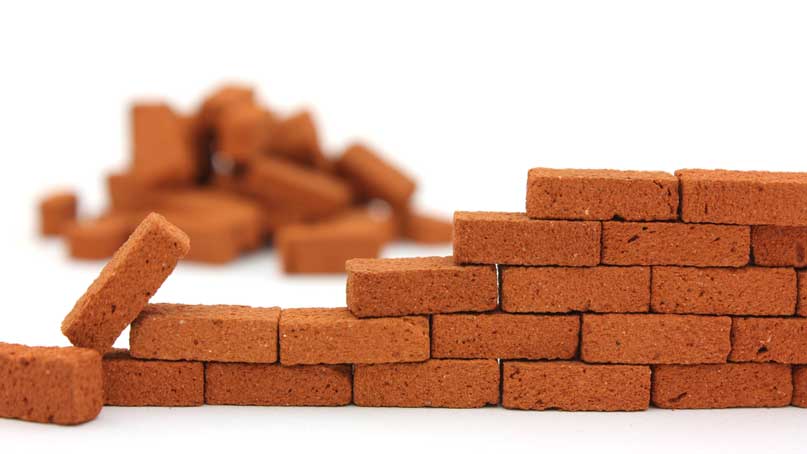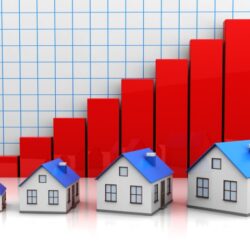This reader is looking to buy in Tamarindo, Costa Rica, and wants to know how much anxiety is too much when embarking on a real estate purchase. What would you advise?
I just happened to come across your blog post from 2018 on why you decided not to purchase in Langosta. I am literally about to put in a purchase offer on a property in Tamarindo…and am having second thoughts. I think I may have been overly optimistic in my rental income numbers.
I’ve been going through all of your Costa Rica RE posts and the Langosta property is so similar to the one I’m looking at but mine doesn’t even have a garage or view and is a 15 minute walk to town.. ugh! This is also going to be my first international purchase so pretty anxious about it. Over the years, I have selected, 1031’d, and currently manage…properties across the US for my mom. As a surfer I’ve been to Costa Rica a handful of times going back 20 years but it’s such a different market now post pandemic.
I just turned 46 and I’m looking ahead to the next 10 years to see what I want my life to look like. I’m ultimate hoping to escape suburbia life here in Socal (and its rising costs) and have been looking for a walkable town where I can surf and hopefully find my tribe….I don’t really know anyone living in CR and have been feeling anxious about the whole situation. – TZ
Coincidentally, I’m in the middle of a book on decision-making — Decision Time by Laurence Alison, a psychology professor, and Neil Shortland, a global expert on military decision-making. Though we’re only halfway through 2022 and I’m not yet finished with the book, Decision Time will probably be on my top 10 books for this year. It’s chock full of helpful, actionable insights.
One of the first suggestions they make when faced with a decision that stumps you (as this one seems to stump TZ) is to ask: Do I have to decide this now?
The deal of a lifetime happens about once a year

I can’t find the original person who noted that once-in-a-lifetime deals are not all that rare, but it’s a saying I hear in investment circles quite often. While it’s true that good deals are hard to find, they’re not impossible to find, and they exist in up and down markets.
We just returned from a trip to Tamarindo ourselves, and the place is hopping. The summer is mid-season (because it can be rainy), and yet it seemed as crowded as when we’ve visited in the high (dry) season. The visitors are back, and the real estate is back.
Anecdotally, there had been a moratorium on building because the government was not issuing ‘water rights’ letters. The moratorium has been lifted and so there seems to be a lot of construction. We noticed three new businesses on just the one street leading up to our condo. A planned development of 50+ houses is being built, and there are many more lots for sale throughout the town.
That said, there is no MLS (multiple listing service) in Costa Rica, so it’s hard to tell exactly what’s available and how long things stay on the market. Just walking around Tamarindo, there appears to be ample supply, but there could be even more demand. If demand exceeds supply, then a potential buyer like TZ may want to decide on properties sooner than later.
Another aspect of timing is life stage. Assuming average life expectancy, at 46 (TZ’s age) you’d still have decades left to invest, more than enough time to scout for other deals. You also have decades left to support yourself, so you may not want to lock yourself into an illiquid investment right now.
Without clear criteria everything looks like a good deal
But let’s say that you know you want to buy, and it’s just a question of whether you buy this property or wait. How do you know this specific deal is a good one?
We spent over 40 years in high-cost New York City, so for YEARS after we first started looking at real estate, almost every property out-of-state seemed like a great deal. Everything seems cheap compared to New York City real estate! We bought five rental homes in Indianapolis for less than the cost of one studio apartment in New York. However, these rentals ultimately weren’t cheap. They cost a lot in terms of headache, as well as the opportunity cost of using the locked-up equity elsewhere. We ended up selling the entire portfolio after just a few years.
TZ mentions the criteria of wanting to find escape from the rising costs of SoCal. Yes, Tamarindo is cheaper than SoCal, but most beach locations are cheaper than SoCal! In addition, purchase price is just one cost. There is also ongoing maintenance, insurance, taxes, property management, etc. Finally, there is that opportunity cost issue. I don’t know how much of TZ’s total portfolio would be tied up in this one deal. How much would buying this property preclude you from doing other investments? Personally, I don’t want any one investment to take up too much of my total portfolio.
TZ also mentions running the rental income numbers, so ROI is clearly another criteria. In addition, TZ mentions wanting to find a tribe and opening a co-living space. Lower cost of living, rental profit, building a community, building a business – which of these very different criteria take priority?
What would Jeff Bezos do?

I’m a big fan of Jeff Bezos’ decision-making framework, which categorizes decisions into two types: Type 1 which are difficult to unwind or sometimes irreversible (e.g., changing careers, getting married or divorced); and Type 2 which are easy to change (e.g., picking a vacation destination).
Buying real estate has Type 1 properties because it has high transaction costs in both buying and selling. It takes time to unwind so it’s illiquid. A property that takes up the bulk of your portfolio changes your risk/ reward profile considerably.
However, if there is a well-functioning real estate market, which Tamarindo has, then buying real estate is arguably a Type 2 decision. You can sell it. Since TZ has multiple uses for the property already in mind – both as a residence and business – there is less of a commitment to any one path. TZ has substantive real estate experience managing family properties, so hopefully there are some hard-won insights that help mitigate the risk of the property succeeding.
Since buying a property has both Type 1 and Type 2 decision properties depending on the specific circumstances, only you will know whether you should slow down and get as much information as you need (Type 1) or go fast and seize the moment (Type 2).
Personally, we have participated in over 20 transactions (either buying or selling) so the real estate transactions we typically do feel more Type 2. HOWEVER, we’re in a period of high inflation and potential recession, which makes any large money decision (like buying real estate) more Type 1.
Focus on process over outcome

At the end of the day, you only control your own process, not the ultimate outcome. If you take the time to clarify your priorities and run your analysis with those criteria in mind, then you’ll at least make a decision you can live with – even if later on you might have made a different decision. There are several properties I remember passing up that I wish I had bought. There are several I have sold that I wish I had kept.
This past year, we sold one of our Tamarindo condos. Since we sold it, the price of other sales in the same complex have gone up by more than 50% – ouch! However, the reasons why we sold when we did are still valid, so I don’t second-guess myself. The missed appreciation hurts, but that’s the way investing is. It’s hard to catch the exact top or bottom, so might as well make decisions you can live with.
Think about the worst-case scenarios. You buy a property, and the market crashes. You move there, and you actually don’t like living there as much as visiting. You set up a co-living space, and no one moves in. Are you still OK – financially and emotionally? Would your decision still make sense – to you (there will always be naysayers)? Anxiety before a significant decision is normal, but it could also be a warning from your instincts to do more deliberating.


 We are Scott and Caroline, 50-somethings who spent the first 20+ years of our adult lives in New York City, working traditional careers and raising 2 kids. We left full-time work in our mid-40’s for location-independent, part-time consulting projects and real estate investing, in order to create a more flexible and travel-centric lifestyle.
We are Scott and Caroline, 50-somethings who spent the first 20+ years of our adult lives in New York City, working traditional careers and raising 2 kids. We left full-time work in our mid-40’s for location-independent, part-time consulting projects and real estate investing, in order to create a more flexible and travel-centric lifestyle.  Financial independence and early retirement is not something we originally focused on, but over time realized it was possible. Our free report,
Financial independence and early retirement is not something we originally focused on, but over time realized it was possible. Our free report, 






